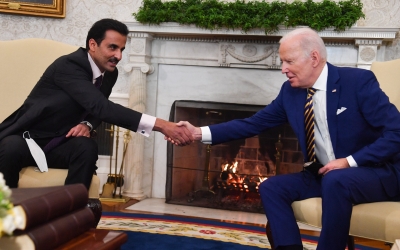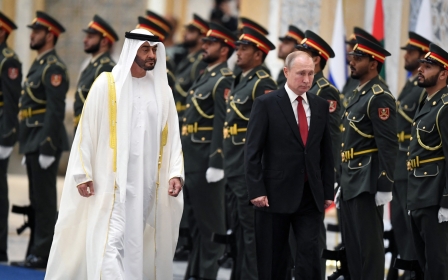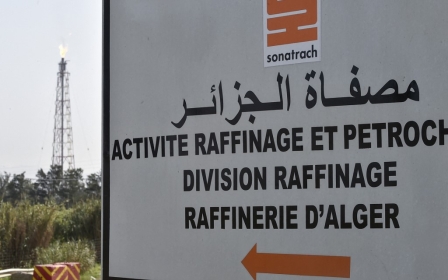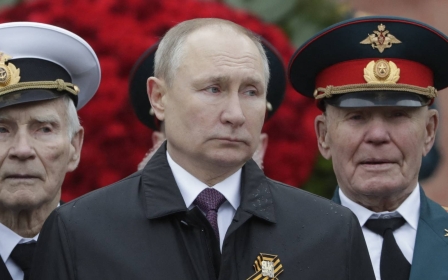Russia-Ukraine war: Qatar supports Ukraine's territorial integrity
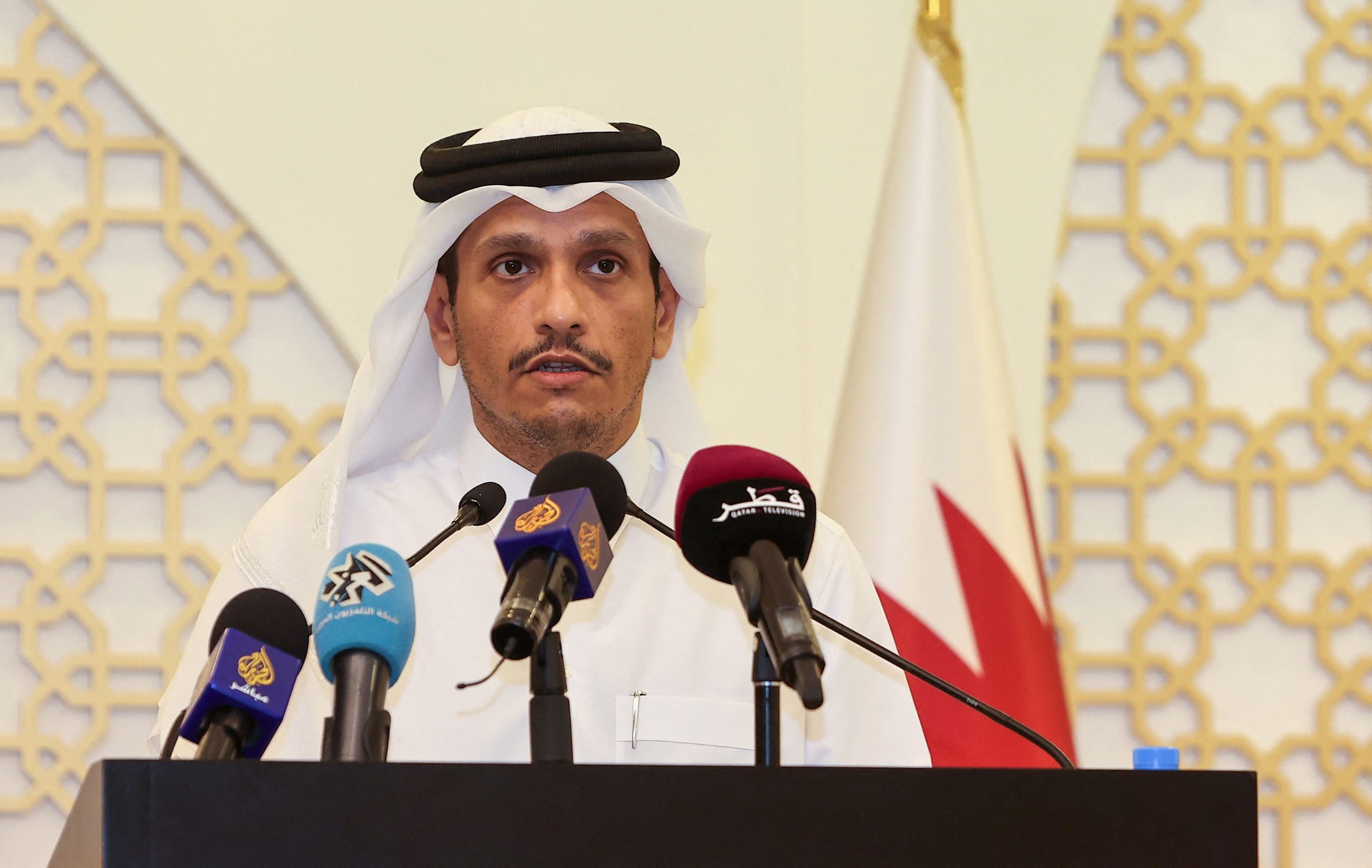
Qatar's foreign minister called on Monday for a diplomatic settlement to the conflict between Moscow and Kyiv, to preserve Ukraine's sovereignty and territorial integrity within its internationally recognised borders.
In a recorded speech to the meeting of the Human Rights Council in Geneva, Sheikh Mohammed bin Abdulrahman Al Thani rejected the use of force as a means to settle international conflicts.
The conflict entered its fifth day on Monday, as Russian troops continue to fight a fierce Ukrainian resistance on multiple fronts while delegations from both sides met near the border with Belarus to discuss a ceasefire.
The effects of Russia's invasion has reverberated across the Gulf region, where oil and gas producers face economic and political dilemmas in easing prices and alleviating shortages in Europe.
Last week, Qatar's energy minister, Saad al-Kaabi, said that neither Doha nor any other single country can replace Russian gas supplies to Europe with liquefied natural gas (LNG).
"Russia (provides) I think 30-40 percent of the supply to Europe. There is no single country that can replace that kind of volume, there isn't the capacity to do that from LNG," al-Kaabi said during a gas conference in Doha.
With most of Qatar's supplies locked into long-term contracts to predominantly Asian buyers, the amount that can be diverted to Europe is only 10-15 percent, the minister said.
Sources also told Reuters that Qatari LNG exports have been lower over the past few days, as two of its mega trains have been down, another factor that could limit the amount to be sent to Europe.
But as the West united in its punitive response to Russian aggression in Ukraine, Gulf states, including Qatar, have mostly kept out of the crisis.
The lack of condemnation from Gulf states largely stems from the main issues at play - energy, money and security.
Like the UAE, Saudi Arabia has not reacted to the invasion, while Kuwait and Qatar denounced only the violence, stopping short of directly criticising Moscow.
Middle East Eye delivers independent and unrivalled coverage and analysis of the Middle East, North Africa and beyond. To learn more about republishing this content and the associated fees, please fill out this form. More about MEE can be found here.


